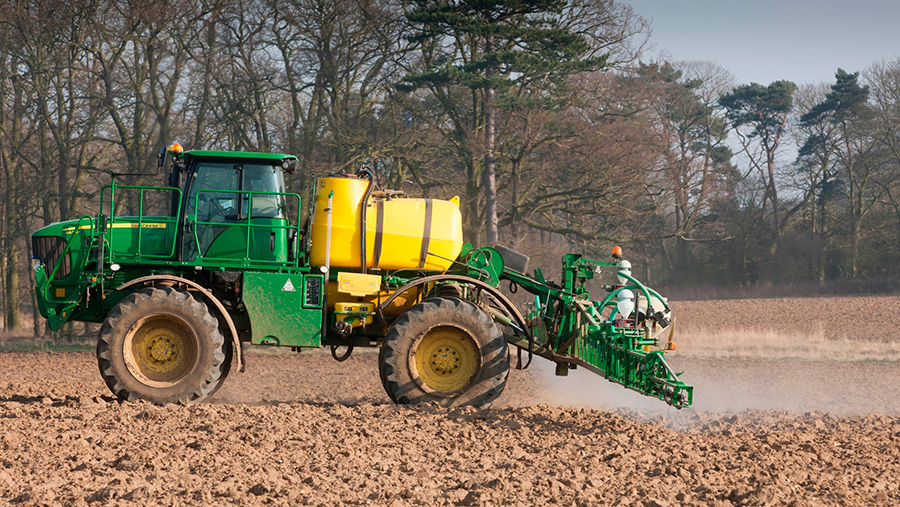Study sparks fresh row over glyphosate safety
 © Tim Scrivener
© Tim Scrivener A study has claimed that exposure to very low doses of glyphosate, the main ingredient in Monsanto’s Roundup weedkiller, may cause liver disease in rats.
The research, conducted by an international group of scientists from the UK, Italy and France, examined the effect of adding tiny amounts of Roundup to water that was given to female rats over a two-year period.
The results demonstrated that the consumption of small quantities of Roundup, well below the permissible concentration levels of regulators worldwide, were associated with non-alcoholic fatty liver disease (NAFLD) in rats.
See also: On-farm trials focus on growing without glyphosate
In June, the European Commission agreed an 18-month extension of glyphosate’s licence to allow time for the European Chemicals Agency (ECHA) to reassess the safety of the product.
The decision to extend glyphosate’s licence for a limited period followed contradictory findings by various scientific bodies on its carcinogenic risk.
The latest peer-reviewed study, led by Michael Antoniou of King’s College London, was published in the journal Scientific Reports on Monday (9 January).
Dr Antoniou said the results suggested that regulators “should reconsider the safety evaluation of glyphosate-based herbicides”.
Science disputed
Scientists believe well-conducted studies of feeding rats can be good indicators of potential health effects in humans.
However, Monsanto said people should be very cautious about the findings of the study because it was conducted by researchers, including Robin Mesnage and Gilles-Eric Seralini, whose similar past studies “have been widely rejected by the international science community due to faulty science”.
In a statement, Monsanto said: “Glyphosate has a long history of safe use. In evaluations spanning four decades, the overwhelming conclusion of experts worldwide has been that glyphosate, when used according to label directions, does not present an unreasonable risk of adverse effects to humans, wildlife or the environment.”
Glyphosate is a key herbicide in the crop protection toolbox because it allows farmers to combat weeds while supporting cultivation methods that can preserve soil structure. For example, the pre-harvest use of glyphosate means farmers can harvest wheat crops earlier and avoid the need for deep ploughing.
‘Crucial tool’
Mark Buckingham, UK spokesman for Monsanto, added: “Glyphosate is one of the most thoroughly tested herbicides on the market, those tests by expert regulators have consistently concluded that glyphosate can be safely used.
“Glyphosate is a crucial tool in a farmers’ armoury. To put this in context, glyphosate is less toxic than baking soda, table salt and the caffeine in our coffee and it enables farmers to control weeds while protecting soil life such as earth worms and reducing carbon emissions.”
But Peter Melchett, policy director at the organic farming lobby group the Soil Association, said: “This research is the first evidence of a clear causative link between consumption of Roundup at levels that are found in the real world and a serious disease.”
What is non-alcholic fatty liver disease?
Non-alcoholic fatty liver disease (NAFLD) is the term for a range of conditions caused by a build-up of fat in the liver. It’s usually seen in people who are overweight or obese.
A healthy liver should contain little or no fat. It’s estimated that up to one in every three people in the UK has early stages of NAFLD where there are small amounts of fat in their liver.
Early-stage NAFLD doesn’t usually cause any harm, but it can lead to serious liver damage, including cirrhosis, if it gets worse. Having high levels of fat in your liver is also associated with an increased risk of problems such as diabetes, heart attacks and strokes.
If detected and managed at an early stage, it’s possible to stop NAFLD getting worse and reduce the amount of fat in your liver.
Source: NHS Choices

